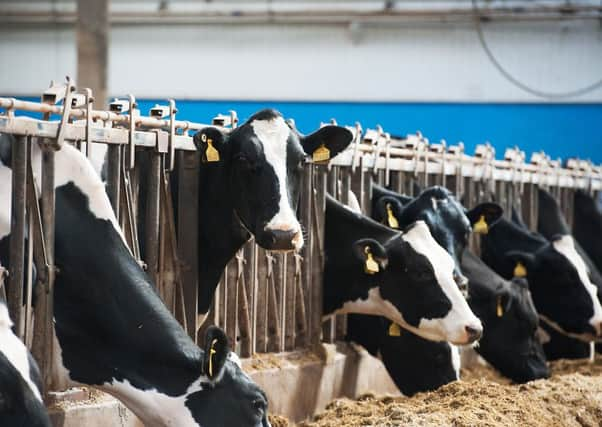Tighter rules '˜will protect Scotland's TB-free status'
This article contains affiliate links. We may earn a small commission on items purchased through this article, but that does not affect our editorial judgement.


And a public consultation on such a move – which would bring Scotland into line with measures already taken in England and Wales where TB remains a major problem for both the dairy and beef sectors – was launched yesterday.
• READ MORE: Farming news
With Scotland’s officially tuberculosis free (OFT) status highly prized by the country’s cattle industry, the vast majority of producers abide strictly by the regulations, a fact acknowledged by the Scottish Government which said that the industry had always been keen to work towards maintaining the current low levels of TB in Scotland.
Advertisement
Hide AdAdvertisement
Hide AdHowever, south of the Border, the Department of the Environment, Food and Rural Affairs has already introduced provisions to reduce compensation for those keepers who have failed to carry out TB testing on time and are now consulting on further proposed changes to payment of compensation.
Wales have gone even further and recently introduced an enhanced TB eradication programme which links compensation to good biosecurity, husbandry practices and adherence with the rules, and allows them to reduce compensation across a number of different noncompliance issues.
“We have considered whether there is scope to implement further measures to encourage farmers to follow good farming practices and keep disease out of their herds,” rural economy secretary, Fergus Ewing said as he announced the consultation period yesterday.
And he added that it seemed “only fair and reasonable” that where a keeper had broken the rules they should not then be able to recover the full market value for animals that became diseased and were slaughtered as a result of poor farming practices or noncompliance.
Claiming that the impact of such changes would be minimal to the vast majority of producers who abided by the rules, he added that the changes would also stop Scotland being considered a soft option by unscrupulous traders.
Compulsory purchase plans under fire
Without a hard and fast definition of “sustainable development”, Scotland’s farming and landowning bodies are opposed to extending compulsory purchase powers into this area.
And introducing such powers in the Forestry and Land Management Bill currently being scrutinised by the Scottish Parliament would run the risk of undermining relationships between the farming and forestry sectors.
Advertisement
Hide AdAdvertisement
Hide AdGiving evidence to the rural economy committee, NFU Scotland’s deputy director of policy, Andrew Bauer, said that there was no objection to many of the proposals in the bill – but there were “serious concerns” over proposals to allow compulsory purchase of land to “further the achievement of sustainable development”.
Following recent complaints about the way in which existing compulsory purchase powers had been used by roads authorities, he said the union was concerned.
“The Scottish Law Commission recently concluded that Scottish compulsory purchase legislation is not fit for purpose, and we would agree with that,” said Bauer.
“We also have concerns that while ‘sustainable development’ is a widely accepted term, it merits clarity and guidance on its application, not just in this bill but in other pieces of legislation,” he added.
Stating that the Law Society of Scotland had expressed legal uncertainty over the term “sustainable development”, he said: “However positive the intentions behind the proposal, the severe shortcomings of the compulsory purchase process and the ‘blank cheque’ that ‘furthering the achievement of sustainable development’ represents means that NFU Scotland is opposed to the proposed expansion in these powers.”
His thoughts were echoed by SLE chairman David Johnstone, who said that while there had been a compulsory purchase mechanism for forestry purposes for more than 50 years, these had never been used.
“It therefore seems completely unnecessary to extend it, when co-operation rather than legal conflict should be the route,” he said.